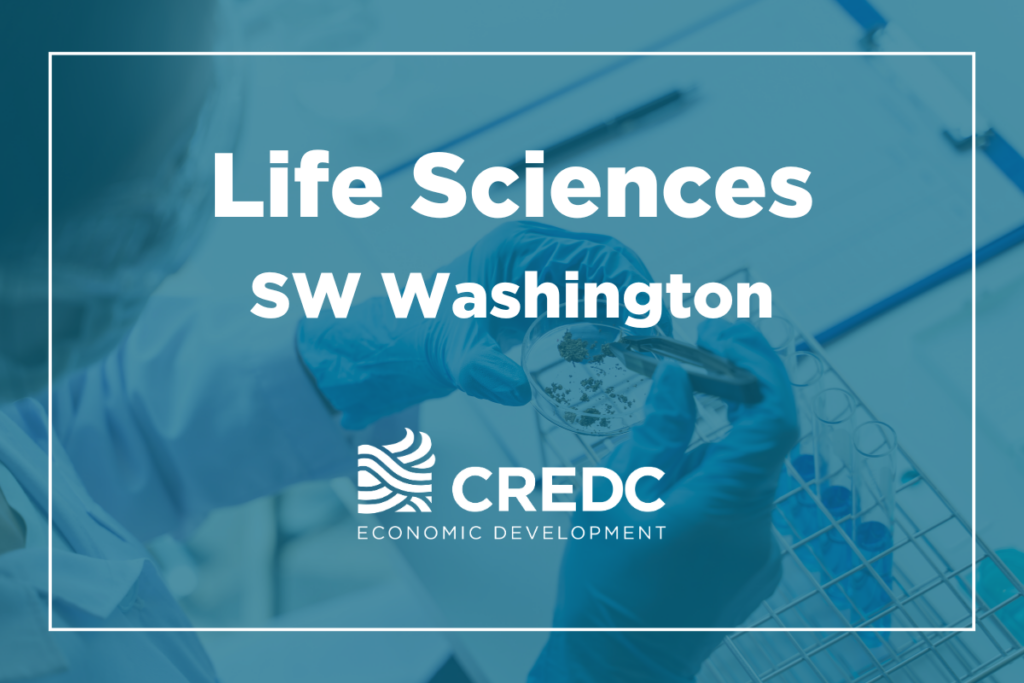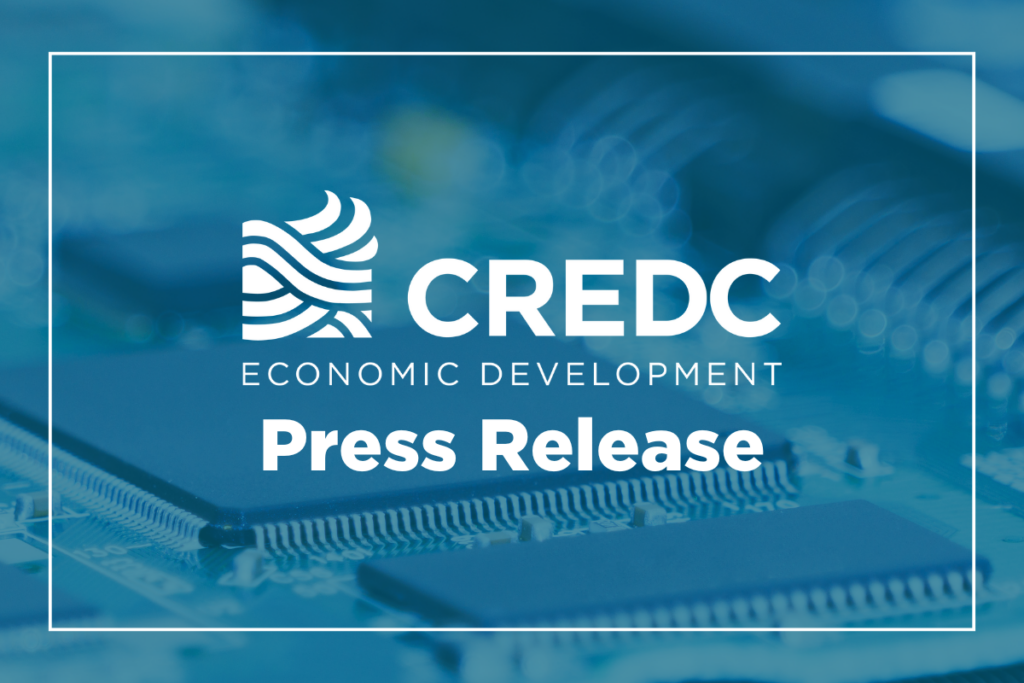This summer, Washington State University Vancouver (WSU-V) dedicated its new Life Sciences Building, activating a state-of-the-art educational asset in SW Washington. This modern facility is an invitation for future faculty and industry collaboration in the tech bio sector.
With life sciences/tech bio poised to be one of the sectors with the most potential for growth in SW Washington, it’s valuable to reflect on the success story of one large company that positioned itself to establish and grow in Clark County, WA—Absci, a generative AI drug creation company.
Founded in 2011 by Sean McClain, Absci’s first team of six employees worked in shared lab space at the Oregon Bio incubator Oregon Translational Research and Development Institute (OTRADI) in Portland, OR. As Absci outgrew its Oregon space, leadership looked for opportunities to stay in the Greater Portland area and was drawn to Vancouver, WA.
Washington State’s Associate Development Organization in Clark County, the Columbia River Economic Development Council (CREDC), helped Absci secure $200,000 from Washington State’s Economic Development Strategic Reserve Fund (SRF) as seed funding to build out company space in downtown Vancouver.
Absci went public in September 2022, now has approximately 200 employees, and has successfully established a second presence on the East Coast. Absci is a dealmaker on the international stage, recently signing an agreement worth up to $247 million with drugmaker AstraZeneca to design an antibody to fight cancer.
“The trajectory of Absci’s growth highlights the importance of promoting promising life science companies in the state of Washington,” said Radi Simeonova, managing director of business development for the Washington Department of Commerce.
With some 8,000 bioscience employees across more than 200 entities, the region is considered a top 10 growth market for life sciences/biotech sector, according to Greater Portland Inc (GPI), a regional public-private partnership serving Oregon and SW Washington.
These companies are creating life-changing innovations in computational biology, biochemistry, and cellular programming.
Wages tend to be higher than average in this sector, as well as having greater gender parity than other leading northwest industries. Women make 44% of life sciences jobs compared to 24% in aerospace and 30% in computer technology, according to the Washington State Department of Commerce.
“We benefit greatly by the resources and individuals in Portland and the strategic partnership with GPI,” Schuyler Hoss, former international business advisor to the governor, who later consulted for Absci. “It has been pivotal for business attraction to Southwest Washington. The vision is to create the platforms with the huge companies.
Companies locate here and share the workforce.” So, what’s next for the life sciences sector here in SW Washington?
At a CREDC-convened tech bio roundtable in April 2024, business leaders, elected officials, and educators discussed the future of life sciences in SW Washington.
“Life sciences is a promising growth sector here in SW Washington,” said Jen Baker, president and CEO of CREDC. “Convening industry leaders for conversation is key to cultivating industry and higher ed collaboration and vision for the future.”
When Absci was first growing, not only could it benefit the business environment with no state income tax, but also the advantage of Washington State’s (now-sunset) research and development tax credit. Some suggested bringing back the R&D tax credit could attract other life sciences companies to SW Washington.
Public incentives aside, private investments to build wet labs and technical R&D spaces require a specialized type of development and construction expertise. Enter regional owner and developer PacTrust, which in 2018 began construction of Absci’s bioscience facility, a one‐story 77,974-square foot office/flex building on Mill Plain across from Banfield Pet Hospital headquarters. The building is a portion of Columbia Tech Center (CTC), a mixed-use development on approximately 430 acres.
“Columbia Tech Center was built to be a community. To add to that with local business, to be part of that local success, it’s cool,” said Jake Bigby, Vice President at PacTrust. “It makes it extra special when it’s a home-grown company working to continue to build that community.”



